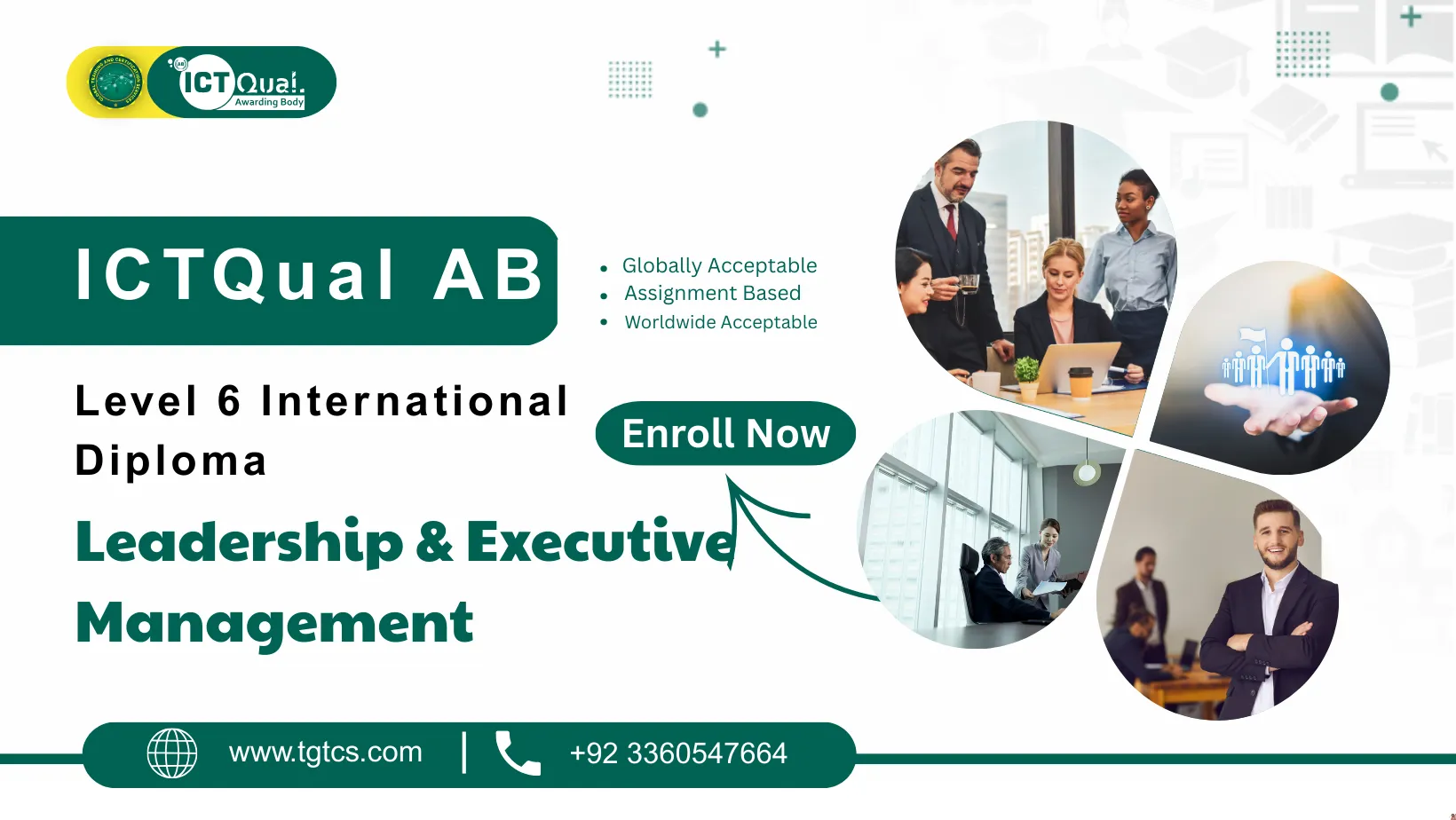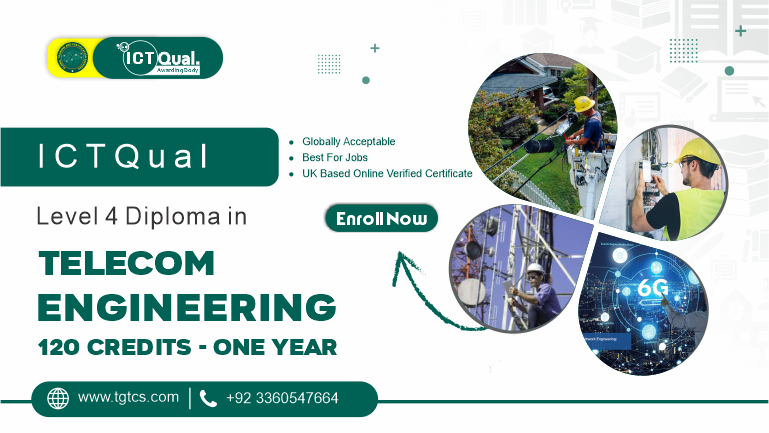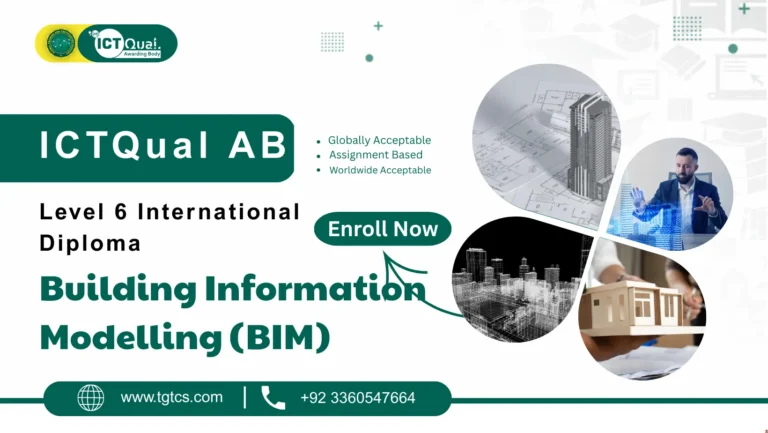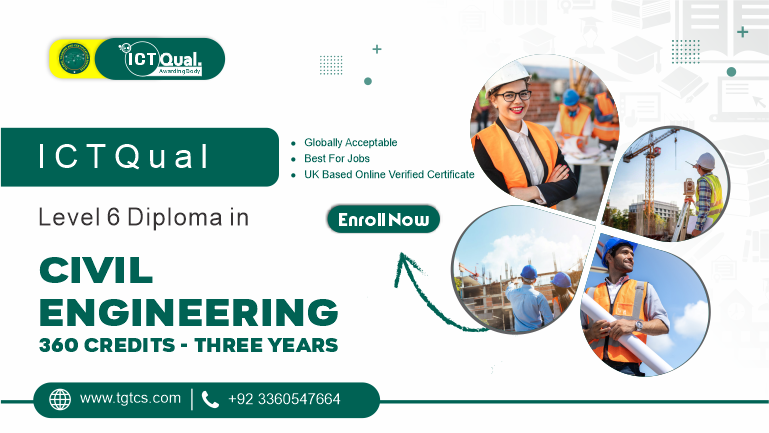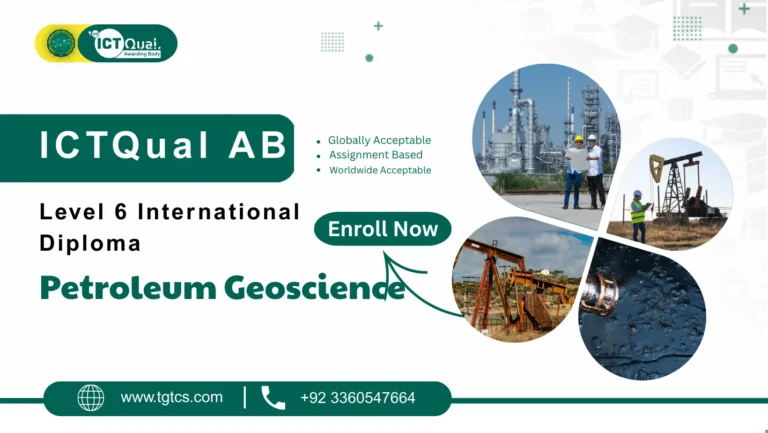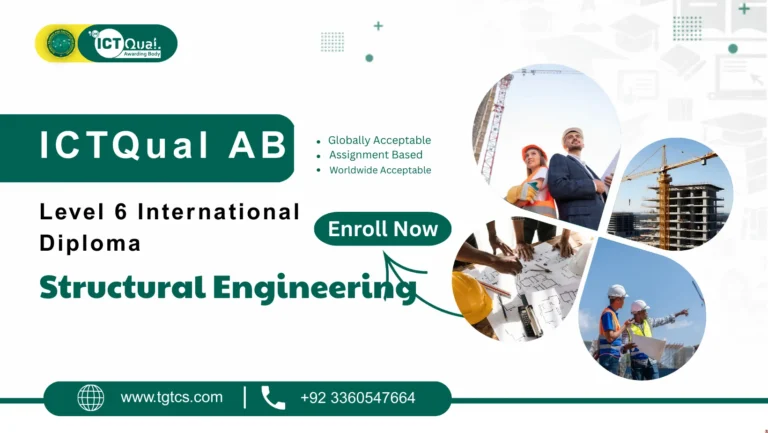ICTQual AB Level 6 International Diploma in Leadership and Executive Management
In today’s rapidly evolving business environment, effective leadership and executive management are critical for driving organizational success and long-term growth. The ICTQual AB Level 6 International Diploma in Leadership and Executive Management is designed to provide learners with advanced knowledge, practical strategies, and professional skills essential for excelling in senior leadership roles across industries.
This globally recognized diploma focuses on equipping learners with a strong foundation in executive decision-making, corporate governance, organizational strategy, and people management. The course goes beyond theory, emphasizing real-world applications in areas such as strategic leadership, business transformation, conflict resolution, and high-performance team development. Learners will gain the ability to manage complex challenges, lead innovation, and implement sustainable solutions within diverse business environments.
Through a structured program of study, participants will build expertise in executive leadership, strategic management, organizational change, financial planning, and international business leadership. The diploma also sharpens communication, negotiation, and critical thinking skills, preparing graduates to become influential leaders and executives capable of shaping business outcomes in competitive markets.
The ICTQual AB Level 6 International Diploma in Leadership and Executive Management is ideal for professionals, managers, and aspiring executives who aim to enhance their leadership capabilities and achieve career advancement. With its global recognition and practical orientation, this qualification empowers learners to unlock new opportunities in senior leadership, corporate strategy, and executive management roles worldwide.
The Global Training and Certification Services is Approved Training Centre of ICTQual AB UK Ltd
Course Level and Credits
Level 6 International Diploma, 360 credits.
Suitable for managers, executives, and professionals aiming to strengthen advanced leadership and executive management expertise.
Mode of Study
Fully assignment-based; learn at your own pace.
Accessible from anywhere in the world, flexible for working professionals.
Global Recognition & Attestation
British Council verifiable, MOFA and Embassy attested.
Recognized for career advancement, employment, and iqama approval in Gulf countries.
Scope and Purpose
Comprehensive coverage of leadership theories, executive management strategies, and organizational development practices.
Focus on strategic decision-making, innovation, governance, and real-world leadership applications in global business environments.
Skills and Knowledge Gained
Executive leadership and organizational strategy.
Corporate governance, change management, and performance improvement.
Financial planning, resource management, and business transformation.
Advanced communication, negotiation, and decision-making skills.
Career Benefits
Opens opportunities in senior management, executive leadership, consultancy, and corporate strategy roles.
Enhances professional credibility and employability in both domestic and international markets.
Target Audience
Mid-level managers, senior professionals, and aspiring executives aiming for higher leadership positions.
Business leaders, entrepreneurs, and consultants seeking advanced executive management knowledge.
Unique Selling Points (USPs)
Flexible self-paced study, fully assignment-based.
Prestigious and globally recognized Level 6 diploma.
Ideal for leadership career advancement, consultancy roles, and iqama approval.
Mandatory Unit
This qualification, the ICTQual AB Level 6 International Diploma in Leadership & Executive Management, consists of 36 mandatory units.
Year 1 – Foundation in Leadership & Executive Management
- Introduction to Leadership and Executive Management
- Principles of Organisational Behaviour
- Communication and Interpersonal Skills
- Business Ethics and Professional Conduct
- Fundamentals of Strategic Management
- Financial Principles for Managers
- Human Resource Management Basics
- Decision-Making and Problem-Solving Techniques
- Project Management Essentials
- Time Management and Personal Effectiveness
- Introduction to Change Management
- Business Technology and Information Systems
Year 2 – Intermediate Leadership & Executive Management
- Advanced Leadership Principles
- Organisational Culture and Development
- Team Building and Motivation Strategies
- Conflict Resolution and Negotiation Skills
- Strategic Planning and Implementation
- Budgeting, Financial Analysis, and Control
- Performance Management and Appraisal
- Operational Management and Process Improvement
- Risk Management in Business Operations
- Corporate Governance and Compliance
- Stakeholder Engagement and Relationship Management
- Research Methods for Managers
Year 3 – Advanced Leadership & Executive Management
- Executive Decision-Making and Critical Thinking
- Strategic Change Management
- Leadership in Innovation and Entrepreneurship
- Organisational Strategy and Competitive Advantage
- Advanced Project Management and Portfolio Oversight
- Global Business and International Management
- Advanced Financial Management for Executives
- Leadership for Sustainable Business Practices
- Crisis Management and Business Continuity
- Executive Communication and Presentation Skills
- Capstone Project in Leadership & Executive Management
- Professional Development and Career Planning
The ICTQual AB Level 6 International Diploma in Leadership and Executive Management equips learners with advanced leadership knowledge, executive decision-making skills, and strategic management expertise. These learning outcomes ensure graduates are prepared to lead organizations effectively, drive innovation, and implement sustainable business strategies in competitive global markets.
Year 1 – Foundation in Leadership & Executive Management
Introduction to Leadership and Executive Management
- Understand the fundamental principles of leadership and executive management.
- Differentiate between leadership styles and their impact on organizational success.
- Apply basic leadership theories in practical business contexts.
- Develop self-awareness and identify core leadership strengths.
Principles of Organisational Behaviour
- Explain key theories of organizational behaviour and workplace dynamics.
- Analyse the influence of individual and group behaviour on performance.
- Assess the role of motivation, culture, and diversity in organizational success.
- Apply behavioural concepts to improve team collaboration.
Communication and Interpersonal Skills
- Demonstrate effective verbal and written communication techniques.
- Apply interpersonal skills to build trust and relationships.
- Use communication tools to manage workplace conflict.
- Enhance listening and persuasion skills for professional impact.
Business Ethics and Professional Conduct
- Define ethical principles and professional standards in leadership.
- Apply ethical frameworks to organizational decision-making.
- Evaluate the impact of corporate social responsibility on businesses.
- Promote integrity and accountability in management practices.
Fundamentals of Strategic Management
- Understand the core concepts of strategy and business competitiveness.
- Analyse internal and external factors that influence strategic planning.
- Apply models such as SWOT and PESTLE for decision-making.
- Explain the importance of vision, mission, and goal-setting.
Financial Principles for Managers
- Interpret financial statements and key performance indicators.
- Apply budgeting and cost-control methods to managerial decisions.
- Understand the principles of cash flow, profit, and loss.
- Develop financial awareness for executive decision-making.
Human Resource Management Basics
- Explain the fundamentals of HR planning and recruitment.
- Understand employee motivation and performance management.
- Apply HR policies that support organizational growth.
- Evaluate the importance of training and development strategies.
Decision-Making and Problem-Solving Techniques
- Identify structured approaches to executive decision-making.
- Apply analytical tools to solve complex business problems.
- Evaluate risk and uncertainty in decision-making.
- Develop innovative and logical solutions to workplace challenges.
Project Management Essentials
- Understand project management methodologies and frameworks.
- Apply project planning and scheduling tools.
- Evaluate resource allocation and risk management in projects.
- Monitor and control project performance effectively.
Time Management and Personal Effectiveness
- Apply prioritization techniques to optimize time management.
- Use productivity tools to enhance personal efficiency.
- Develop self-discipline and goal-setting strategies.
- Balance work responsibilities with professional growth.
Introduction to Change Management
- Explain the importance of change in organizational success.
- Identify key drivers of change in modern businesses.
- Analyse models such as Lewin’s Change Theory.
- Apply basic strategies for managing resistance to change.
Business Technology and Information Systems
- Understand the role of technology in business transformation.
- Evaluate the impact of digital systems on decision-making.
- Apply information systems for business efficiency.
- Identify emerging technologies relevant to leadership.
Year 2 – Intermediate Leadership & Executive Management
Advanced Leadership Principles
- Evaluate modern leadership theories and applications.
- Develop advanced skills for motivating and influencing teams.
- Analyse the role of leadership in organizational innovation.
- Apply transformational and transactional leadership in practice.
Organisational Culture and Development
- Understand the concept of corporate culture and its significance.
- Analyse how culture affects strategy and performance.
- Apply models to shape and develop positive organizational cultures.
- Promote adaptability and inclusiveness in the workplace.
Team Building and Motivation Strategies
- Apply leadership techniques to build effective teams.
- Develop strategies to increase motivation and engagement.
- Manage team dynamics for enhanced collaboration.
- Evaluate the link between motivation and performance outcomes.
Conflict Resolution and Negotiation Skills
- Identify the sources and types of workplace conflict.
- Apply negotiation techniques to achieve win-win outcomes.
- Develop conflict resolution strategies for managers.
- Enhance problem-solving through collaborative approaches.
Strategic Planning and Implementation
- Formulate long-term strategic objectives.
- Apply strategic frameworks for organizational growth.
- Analyse challenges in executing business strategies.
- Monitor and measure success of strategy implementation.
Budgeting, Financial Analysis, and Control
- Prepare and manage organizational budgets effectively.
- Analyse financial data for executive decision-making.
- Apply financial controls to minimize risks.
- Evaluate business performance through financial ratios.
Performance Management and Appraisal
- Design systems for monitoring employee performance.
- Apply appraisal methods to evaluate productivity.
- Use performance feedback to enhance employee development.
- Align performance management with organizational goals.
Operational Management and Process Improvement
- Understand key principles of operational management.
- Apply process improvement tools like Lean and Six Sigma.
- Evaluate efficiency in business operations.
- Implement continuous improvement strategies.
Risk Management in Business Operations
- Identify operational, financial, and strategic risks.
- Apply risk assessment and mitigation techniques.
- Develop a risk management framework for businesses.
- Monitor and adapt strategies to changing environments.
Corporate Governance and Compliance
- Understand principles of corporate governance.
- Apply compliance frameworks in global contexts.
- Evaluate ethical responsibilities of executives.
- Promote transparency and accountability.
Stakeholder Engagement and Relationship Management
- Identify key stakeholders and their interests.
- Apply engagement strategies to maintain trust.
- Develop long-term relationships with stakeholders.
- Manage competing interests in executive decision-making.
Research Methods for Managers
- Apply research methodologies in business management.
- Collect and analyse data for executive decision-making.
- Evaluate reliability and validity of research outcomes.
- Use research to inform strategic planning.
Year 3 – Advanced Leadership & Executive Management
Executive Decision-Making and Critical Thinking
- Apply critical thinking to complex leadership challenges.
- Develop structured approaches to executive decisions.
- Evaluate the role of data-driven decision-making.
- Apply creative solutions to organizational problems.
Strategic Change Management
- Analyse theories and frameworks of change management.
- Apply advanced strategies to drive organizational transformation.
- Evaluate resistance and barriers to change.
- Implement leadership approaches that sustain change.
Leadership in Innovation and Entrepreneurship
- Understand the role of leaders in fostering innovation.
- Apply entrepreneurial leadership strategies.
- Evaluate opportunities for business innovation.
- Promote a culture of creativity and entrepreneurship.
Organisational Strategy and Competitive Advantage
- Formulate strategies to gain competitive advantage.
- Analyse industry competition and market positioning.
- Apply strategic tools like Porter’s Five Forces.
- Evaluate global opportunities for organizational growth.
Advanced Project Management and Portfolio Oversight
- Apply advanced project management frameworks.
- Manage portfolios of projects across business units.
- Evaluate risks and resources in large-scale projects.
- Monitor performance of multiple projects strategically.
Global Business and International Management
- Analyse challenges in global leadership and management.
- Apply international management practices.
- Evaluate cross-cultural leadership strategies.
- Develop solutions for global business competitiveness.
Advanced Financial Management for Executives
- Apply advanced techniques for financial planning.
- Analyse investment decisions and capital structures.
- Evaluate risk-return trade-offs in executive finance.
- Develop financial strategies for long-term growth.
Leadership for Sustainable Business Practices
- Understand the importance of sustainability in leadership.
- Apply frameworks for environmental and social responsibility.
- Integrate sustainability into business strategy.
- Evaluate the role of executives in driving ESG goals.
Crisis Management and Business Continuity
- Identify potential crises in organizational contexts.
- Develop strategies for crisis leadership.
- Apply business continuity planning techniques.
- Evaluate effectiveness of crisis response strategies.
Executive Communication and Presentation Skills
- Deliver persuasive executive-level presentations.
- Apply communication strategies for senior leadership.
- Use data visualization tools to present complex ideas.
- Enhance credibility and influence through communication.
Capstone Project in Leadership & Executive Management
- Apply leadership and executive management theories in practice.
- Conduct research and analysis on a real-world business issue.
- Develop solutions aligned with strategic business goals.
- Present findings to demonstrate executive-level competence.
Professional Development and Career Planning
- Assess personal strengths and leadership competencies.
- Develop career plans aligned with executive roles.
- Apply strategies for continuous professional growth.
- Prepare for leadership challenges in global organizations.
Upon completion, learners will possess the skills, knowledge, and practical experience required to excel in senior leadership roles, influence organizational performance, and achieve career growth in executive management positions worldwide.
The ICTQual AB Level 6 International Diploma in Leadership and Executive Management is designed to empower learners with the strategic, managerial, and leadership skills required to excel in senior executive roles globally. The course offers practical knowledge and globally recognized credentials to boost career growth.
Strategic Leadership Skills
- Develop the ability to lead teams and organizations effectively.
- Enhance strategic thinking for business growth and competitive advantage.
Executive Management Expertise
- Gain practical skills in corporate governance, financial management, and risk assessment.
- Apply advanced management tools to optimize organizational performance.
Innovation and Change Management
- Learn to drive organizational transformation and implement innovative solutions.
- Manage change processes effectively to achieve sustainable business outcomes.
Career Advancement Opportunities
- Access global career opportunities in senior management, consultancy, and executive leadership roles.
- Enhance professional credibility and employability in multinational corporations.
Global Recognition & Professional Growth
- Benefit from a British Council verifiable, MOFA and Embassy attested qualification.
- Strengthen leadership credentials for iqama approval and international career mobility.
This diploma equips learners with comprehensive leadership and management expertise, preparing them to make strategic decisions, lead innovation, and achieve significant career advancement in executive roles worldwide.
The ICTQual AB Level 6 International Diploma in Leadership and Executive Management is suitable for individuals aiming to enhance their strategic, managerial, and leadership capabilities. This qualification is ideal for professionals at various stages of their careers who seek global recognition and advanced executive expertise.
Aspiring Leaders and Managers
- Professionals looking to step into managerial or leadership roles.
- Individuals seeking to develop strategic decision-making and team leadership skills.
Senior Executives and Team Leaders
- Experienced executives aiming to strengthen organizational governance and performance.
- Team leaders seeking practical tools to manage change and drive business growth.
Entrepreneurs and Business Owners
- Business owners aiming to implement effective leadership strategies in their organizations.
- Entrepreneurs looking to enhance strategic planning, innovation, and operational efficiency.
Career Changers and Professionals
- Professionals transitioning into leadership or executive management roles.
- Individuals seeking internationally recognized qualifications to accelerate career advancement.
Global Business and Management Aspirants
- Candidates pursuing careers in multinational corporations or international organizations.
- Professionals targeting iqama approval, consultancy, or executive roles in global markets.
By completing this diploma, learners will acquire the skills, knowledge, and credentials necessary to excel in senior leadership positions, lead organizational change, and achieve significant career growth on an international scale.
Course Overview
Course Level
Level 6
Course Units
36 Units
Credits
360
Duration
3 years
